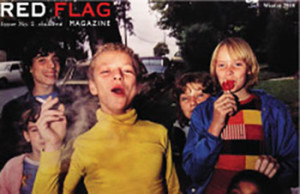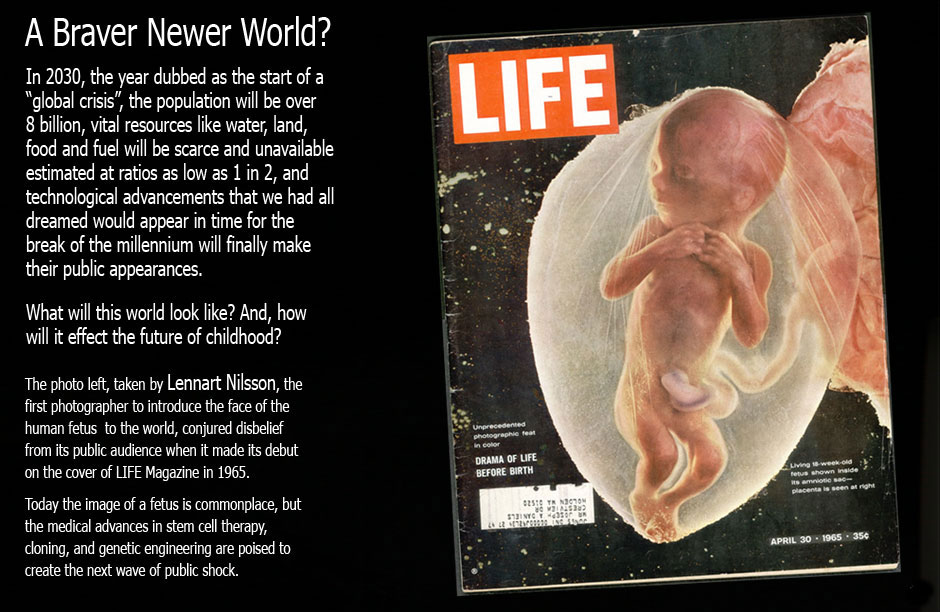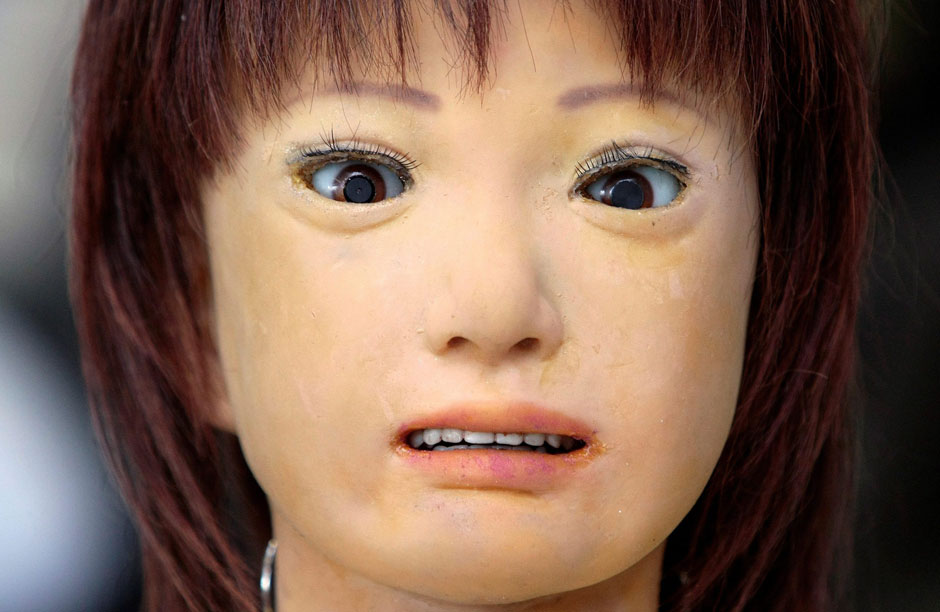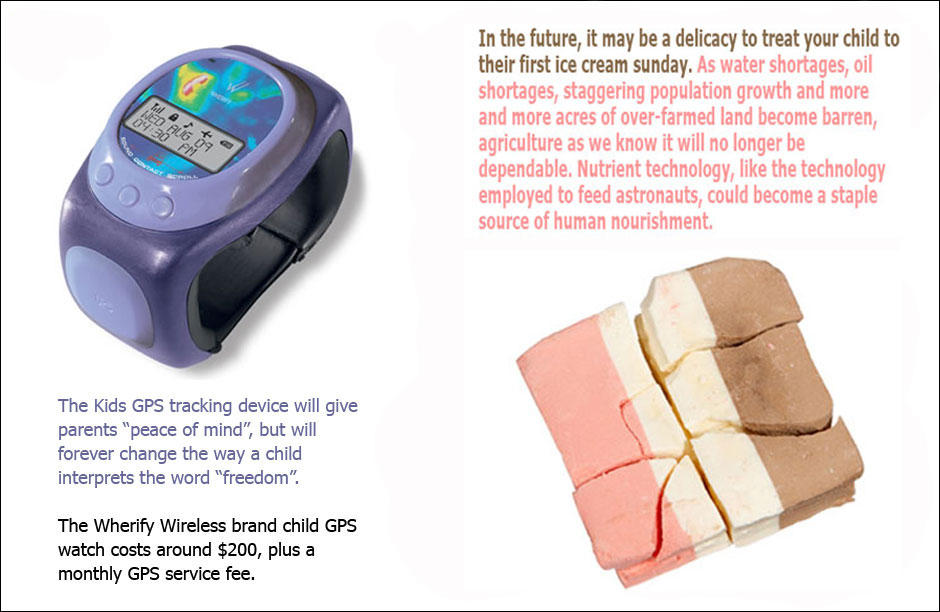A Braver Newer World?
By Olive Lykins
“How Do You Solve a Problem Like Sebastien?”
When Raj and his wife Whitney decided to have a baby, only the best would do.
There was little question of the viability of their love making organically, but Raj and Whitney wanted to be sure of a few things. Raj wanted to be sure of a son. Whitney wanted to know the shade his skin would be, she wanted to know if he would be bi-polar, like her uncle and brother. They wanted to know if he would drink himself to death or lose his mind to Alzheimers and his mobility to fibromyalgia, like Raj Senior, who in the end was a dynasty of teeth chomping at what the mind could translate into little more than spittle choked by rage. Raj knew he wouldn’t live long enough to see his Sebastien grow into these maladies, but he liked taking assurances that his son would live longer than his forefathers.
They went to the kind of hospital that wasn’t listed by any government. It didn’t exist in the same place for long. A moving laboratory, constantly switching between capital cities in countries south of the equator. They practiced a kind of science that didn’t need to be outlawed because it didn’t exist.
On splicing together Raj and Whitney’s genetic code, the secrets they hadn’t told each other as newlyweds came to light. The kind of diseases born in the blood and the mind that are kept locked away in a basement or an attic, maybe even a back shed or a garage, but never long enough for anyone to be sure of. Not as sure as Raj and Whitney, who by selecting their first born in this way, were sure of leaving the ghosts of family violence behind.
Whitney did all the things a new mother would do, but with the assurance that a perfect baby had been placed inside of her. Not by Raj’s fumbling piston, but with the precision of science. She didn’t mean to, but she felt herself better than other mothers she knew.
Since Whitney was such a small woman and Sebastien was proving to be such a large baby, they decided to usurp labor. Before making the incision, they tested Whitney’s anesthetized stomach with a needle. Sebastien kicked out the needle with a precise force.
The surgeon predicted, “this one’s going to be a soccer player.”
After the doctors retrieved Sebastien from the womb they had placed him in, they took other assurances to continue their work. They took stem cells from the blood in the umbilical cord, from the walls of the placenta, from the dozens of embryos that had been produced in vitro and sequenced for selection. They stored genetic material like a savings account made of matter and cells.
Because Raj was not born in the East like his father, he did not think of Eastern gods in his mind but of the Olympians he studied at Oxford. He saw the son born from his mind as Zeus was split from the head of his father. He took to calling this baby from his head Seb and cradling him to sleep.
Even Whitney had to admit he was the perfect baby, more perfect than a girl would have been to her. The things she loved most about him were the things she had never thought to ask about in the doctors office, like the color of Sebastien’s eyes that seemed to vacillate grey and blue.
Three years into the idyll of Seb’s childhood, he began to develop allergies. Rashes covered his once perfect skin. Whitney had the nanny put him on a strict diet of local, organic produce. But even that upset his stomach and irritated his skin. He could only wear organic cotton, free of dyes and hand washed with mild soap. Toothpaste burned Sebastien’s tongue and shampoos blistered his scalp.
He had to be kept on a diet of liquids and became so listless that the family took another trip south of the equator and used the pluripotent stem cells stored from Whitney’s womb to repair Seb’s finicky body. It made Whitney uneasy for the first time.
Although Raj never worried about Seb’s health, he worried constantly about his physical safety. He bought name bracelets hiding gps locators and took constant care in Seb’s daily migrations on the schoolyard. He watched his walk to and from school, checked to see he was asleep in his room on the monitor each night.
Seb was a strange boy in ways his parents never could have thought to ask after. He seemed without humor, happiest playing chess against the characters created in his head. And he played with bees. Seb seemed to find them everywhere. In puddles and water fountains and swimming pools and ponds. He saved them with his fingers, dried them in the sun and blew them back to flight.
As Seb grew into a young man, he was more comfortable with machines than he was with his fellow men. Machines were easier for him to talk to than people. He ran several businesses online from his computer, buying and selling basic commodities that he never came into contact with, except when he tallied his profits. If currency could talk, he would have had a best friend. Instead he had the comforting glow of the monitors that had allowed him to finish his education by correspondence and to summon up images of the types of women who might have appeased his desire with touch. If touch was something he desired.
Raj and Whitney had become more like custodians than parents. He saw their shadows pass behind his bedroom door, occasionally heard their hesitant knock. Raj was convinced the only thing that would bring his son forth from solitude was marriage, and they sourced potential partners for Seb the same way they had sourced his genetic identity.
Although Sebastien left no room for domesticity in the future he planned for himself, he was obsessed with his own mortality. It was the one thing that no doctor could cure him of. Seb still kept a mason jar full of the dead bees he had once collected, and when he rolled the jar between his palms, mesmerized by the turn of the bodies behind the glass, he knew there was no way to slow the breakdown of his own genetic material. That his body would one day decay the way the wings and abdomens of his bees crumbled over time.
One night as he sat turning that mason jar between his hands, the glow of his monitors gone dark in sleep mode, an idea sparked in him that he couldn’t quite accept had never occurred to him before. He would agree to the next proposal his parents forced on him. He would emerge into the world with his new wife, but instead of the honeymoon south of the Equator that Raj and Whitney had taken, Seb and his new bride would need to travel no further than the latest private clinic in Malibu. Genetic technology had quietly and quickly advanced across the border in the last decade, making it that much easier to play creator. With pre-arranged fortitude Seb would select his own child the way he had been selected. Only he wouldn’t need to worry about how the child would turn out, for it wouldn’t be a new person they were making, it would be him.
Before this new life had even begun, Seb could see himself playing out indefinitely. A being without end that could be puzzled out over and over like an algorithm. Already he could see himself as grandson and great-grandson, and although his name might change, the knowledge would remain the same.



